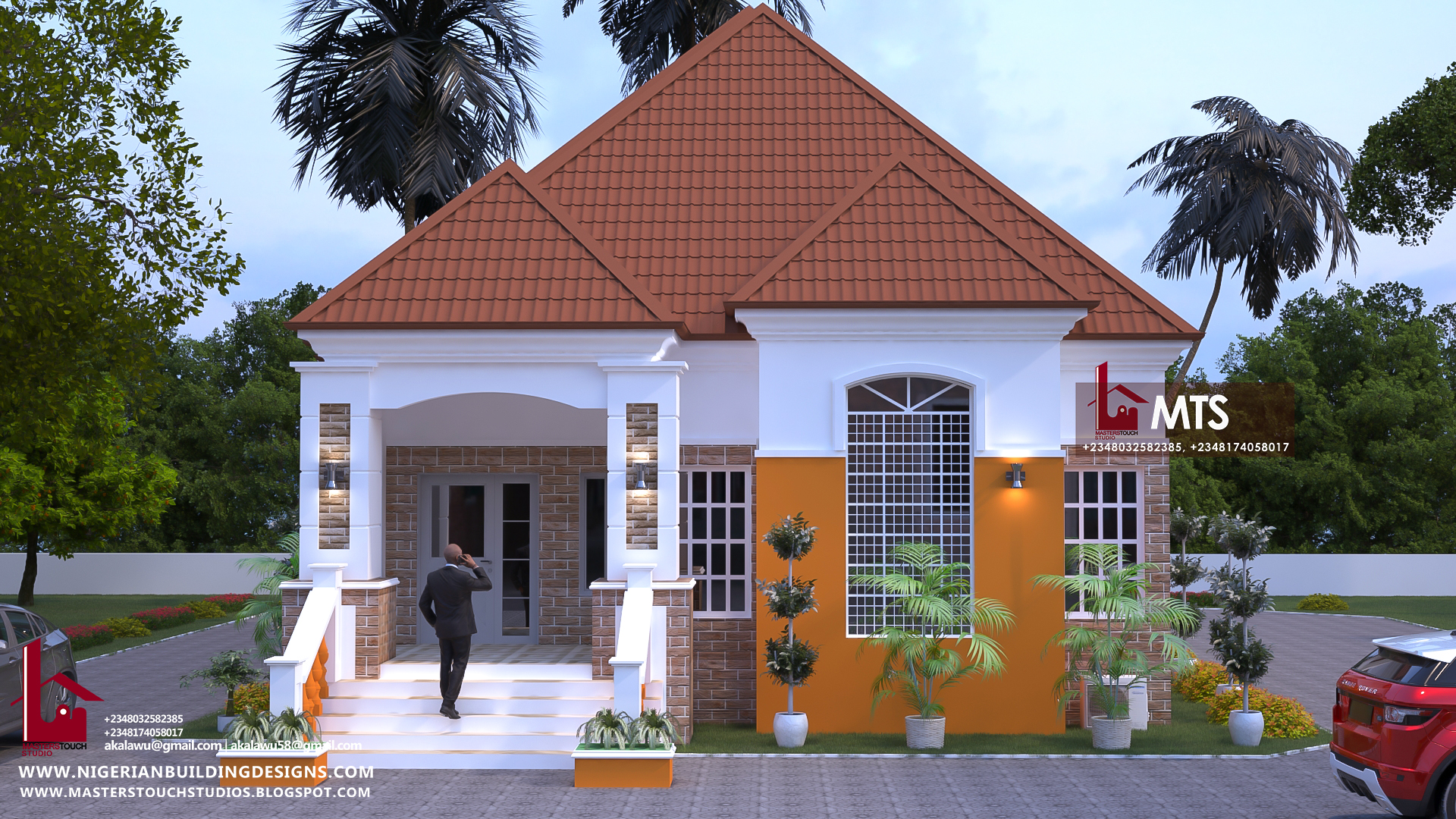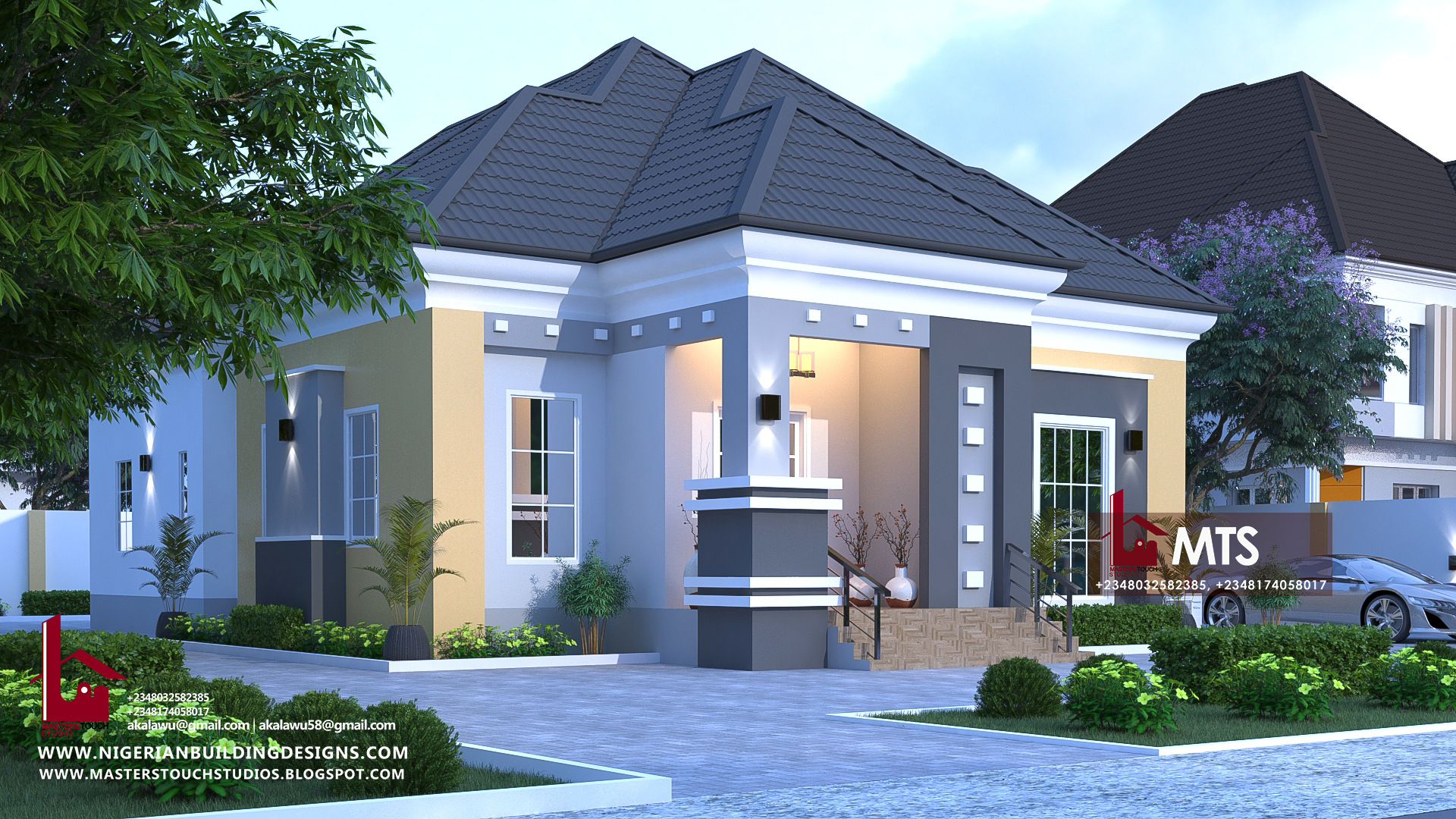The Nigerian Housing Market: Three Bedroom House In Nigeria

The Nigerian housing market is a dynamic and complex landscape, influenced by various economic, social, and demographic factors. It offers both challenges and opportunities for investors, developers, and homebuyers. Understanding the current trends, challenges, and opportunities in this market is crucial for navigating its intricacies and making informed decisions.
Factors Influencing Demand for Three-Bedroom Houses
The demand for three-bedroom houses in Nigeria is driven by a multitude of factors, including population growth, urbanization, and changing lifestyles. The country’s burgeoning population, with a significant proportion of young adults, fuels the demand for housing, particularly for families and individuals seeking more space. The increasing urbanization trend, with people migrating from rural areas to cities for employment and better living standards, further intensifies the demand for housing in urban centers. Furthermore, the evolving lifestyles of Nigerians, characterized by a growing preference for larger and more comfortable living spaces, also contribute to the demand for three-bedroom houses.
Types of Three-Bedroom Houses Available in Nigeria
Three-bedroom houses in Nigeria come in various forms, reflecting the diversity of the housing market and the preferences of buyers. The location, design, and amenities of these houses vary significantly, catering to different budgets and lifestyles.
Location
- Urban Centers: Cities like Lagos, Abuja, and Port Harcourt offer a wide range of three-bedroom houses, from high-rise apartments in luxury complexes to detached homes in gated communities. These areas often feature modern amenities and infrastructure, but come with higher costs.
- Suburban Areas: Suburbs surrounding major cities offer more affordable options, with a mix of detached houses, semi-detached houses, and townhouses. These areas often provide a balance between affordability and access to urban amenities.
- Rural Areas: Three-bedroom houses in rural areas are generally more affordable and often feature traditional designs. These areas may lack the amenities and infrastructure found in urban centers, but offer a more peaceful and tranquil living environment.
Design
- Modern: Modern three-bedroom houses often feature minimalist designs, open floor plans, and contemporary finishes. These houses prioritize functionality and efficiency, with a focus on natural light and ventilation.
- Traditional: Traditional three-bedroom houses often incorporate local architectural styles and materials. These houses may feature courtyards, verandahs, and other elements that are common in Nigerian architecture.
- Contemporary: Contemporary three-bedroom houses blend modern and traditional elements, creating a unique and stylish aesthetic. These houses may feature modern finishes and appliances while incorporating traditional design features.
Amenities
- Basic Amenities: Basic amenities include running water, electricity, and sanitation facilities. These amenities are essential for comfortable living and are typically found in most three-bedroom houses in Nigeria.
- Modern Amenities: Modern amenities include air conditioning, swimming pools, gyms, and security systems. These amenities are more common in high-end houses and gated communities.
- Smart Home Features: Smart home features such as automated lighting, security systems, and entertainment systems are becoming increasingly popular in new developments. These features offer convenience, efficiency, and enhanced security.
Finding the Perfect Three-Bedroom House
Finding the perfect three-bedroom house in Nigeria is a significant step, requiring careful planning and consideration. This guide provides insights into the key factors to consider and the process of searching for your dream home.
Budget and Financial Planning
Before embarking on your house hunt, establishing a realistic budget is crucial. A clear understanding of your financial capabilities will guide your search and prevent disappointment.
- Consider your income, savings, and any existing debt obligations.
- Research mortgage options and interest rates available in the Nigerian market.
- Factor in additional costs beyond the purchase price, such as legal fees, stamp duty, and renovation expenses.
Location and Neighborhood Amenities
The location of your new home significantly impacts your lifestyle and convenience.
- Consider factors such as proximity to your workplace, schools, hospitals, shopping centers, and recreational facilities.
- Evaluate the neighborhood’s security, infrastructure, and overall ambiance.
- Research the availability of essential services like electricity, water, and internet connectivity.
Property Features and Considerations
Once you have narrowed down your location choices, focus on the specific features you desire in a three-bedroom house.
- Think about the size and layout of the house, the number of bathrooms, and any additional rooms you may need, such as a study or guest room.
- Consider the age and condition of the property, the type of construction, and the availability of parking space.
- Evaluate the property’s security features, including perimeter fencing, security cameras, and alarm systems.
Searching for a House
The process of finding your ideal three-bedroom house involves utilizing various resources and strategies.
- Explore online real estate platforms, such as PropertyPro, Jumia House, and ToLet.ng, which offer a wide selection of properties.
- Engage with reputable real estate agents who have a strong understanding of the Nigerian market and can provide personalized recommendations.
- Attend property exhibitions and open houses to view available properties firsthand and gather information from developers and sellers.
Property Viewing Tips
When viewing potential properties, it’s essential to be observant and thorough.
- Pay attention to the overall condition of the house, checking for any signs of damage, leaks, or structural issues.
- Assess the neighborhood’s environment, including noise levels, traffic congestion, and the presence of any potential nuisances.
- Consider the property’s proximity to essential amenities and its overall suitability for your lifestyle.
Negotiation and Legal Due Diligence
Once you have identified a suitable property, you will need to negotiate the purchase price with the seller.
- Research recent property sales in the area to establish a fair market value.
- Engage in open and transparent communication with the seller, outlining your expectations and any potential contingencies.
- Consult with a legal professional to review the sale agreement and ensure all necessary legal requirements are met.
Financing Your Dream Home

Securing a mortgage is a crucial step in realizing your dream of owning a three-bedroom house in Nigeria. With the right mortgage option, you can make homeownership a reality, even if you don’t have the entire purchase price upfront. This section will explore the various mortgage options available in Nigeria, outlining their pros and cons to help you make an informed decision.
Mortgage Options in Nigeria
Navigating the Nigerian mortgage landscape requires understanding the different types of mortgages available. Each option has its unique features and suitability depending on your financial situation and preferences.
- Conventional Mortgages: These mortgages are typically offered by commercial banks and are based on fixed or variable interest rates. They are generally available to individuals with good credit history and stable income.
- Federal Mortgage Bank of Nigeria (FMBN) Mortgages: The FMBN offers affordable mortgage options specifically designed for public sector employees. These mortgages come with lower interest rates and longer repayment periods compared to conventional mortgages.
- Mortgage-Backed Securities (MBS): These securities are backed by pools of mortgages, offering investors a way to invest in the housing market. They are generally less accessible to individual borrowers but can be attractive for institutional investors.
Pros and Cons of Mortgage Options
To choose the most suitable mortgage option, it’s essential to weigh the advantages and disadvantages of each.
- Conventional Mortgages:
- Pros: Flexible terms, wider availability, potentially lower interest rates.
- Cons: Stricter eligibility criteria, higher down payment requirements, potentially higher interest rates compared to FMBN mortgages.
- FMBN Mortgages:
- Pros: Lower interest rates, longer repayment periods, accessible to public sector employees.
- Cons: Limited availability, specific eligibility requirements, potential waiting periods for loan approval.
- Mortgage-Backed Securities (MBS):
- Pros: Diversification of investment portfolio, potential for higher returns.
- Cons: Less accessible to individual borrowers, complex investment vehicle, potential for higher risk.
Securing a Mortgage, Three bedroom house in nigeria
Securing a mortgage involves a series of steps, including:
- Pre-approval: Getting pre-approved for a mortgage helps you understand your borrowing capacity and provides an edge during negotiations with sellers.
- Documentation: Mortgage lenders require specific documentation, including proof of income, credit history, and employment details.
- Property Valuation: The lender will conduct an appraisal to determine the fair market value of the property.
- Loan Approval: Once the documentation is reviewed and the property is appraised, the lender will decide on the loan amount and terms.
- Closing: This final stage involves signing the mortgage documents, transferring ownership, and paying closing costs.
